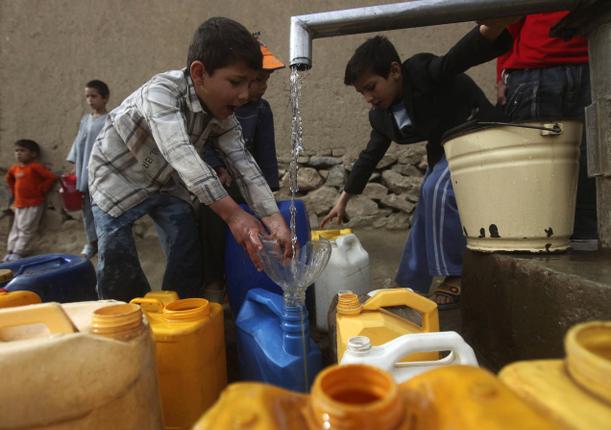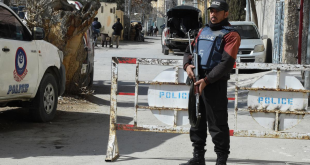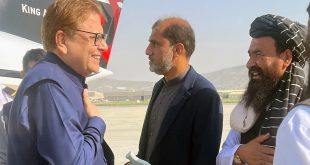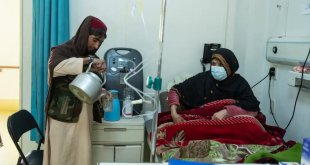AT-KABUL: The World Bank (WB) vice president for operations Kyle Peters pledged the bank’s continued support for Afghanistan on a two-day visit to Kabul who discussed government preparations for the Ministerial Conference on Afghanistan in Brussels in October and reviewed development progress in the country.
During his stay in Kabul, he met with President Mohammad Ashraf Ghani, Chief Executive Abdullah Abdullah and a number of cabinet ministers, including Eklil Hakimi, Minister of Finance.
Peters was accompanied by Annette Dixon, World Bank Vice President for the South Asia Region.
“The World Bank Group will stay the course in supporting the people of Afghanistan in these challenging times,” Peters said.
“The World Bank Group commends the government of national unity for its achievements in the last two years under difficult circumstances, and for its preparation of the conference. It will be important for Afghanistan to signal before and after the conference a commitment to implement key policy reforms, building on the achievements of recent years.”
The Bank analytical work highlights the need for continued high levels of aid, with more aid provided through the government budget to maximize local economic impacts and ensure that government can finance its priority programs.
“The Bank analysis shows that there is potential for faster growth through agriculture and mining. Agriculture can be a major driver of growth, supporting incomes, creating jobs and reducing poverty. Even with the risks involved, mining represents a vital complement to agriculture, providing the only viable source of the government revenues and foreign exchange earnings with which to offset expected declines in aid,” Peters highlighted.
Peters noted the alignment of the World Bank Group’s (WBG) upcoming Country Partnership Framework for Afghanistan with the draft Afghanistan National Peace and Development Framework (ANPDF). The Framework lays a solid foundation for the next four years of collaboration between the WBG and the government.
“The Country Partnership Framework, expected to be finalized later this year, will remain flexible to respond to the limited fiscal space, continuing uncertainty and evolving government priorities,” Peters noted.
During his interactions with the Afghan leadership, Peters emphasized the WBG’s support for regional cooperation to help Afghanistan leverage its unique geographic location at the crossroads of South, Central, and West Asia to meet its substantial and growing needs for energy and water and to explore opportunities for trade and labor migration. To this front, the World Bank Group has already provided Afghanistan a $316.5 million grant to the regional transformational Central Asia South Asia Electricity Transmission and Trade Project (CASA-1000).
As for future WBG support, Peters reassured President Ghani and Chief Executive Abdullah of the continued support of the WBG’s International Development Association (IDA) for Afghanistan, including leveraging donors’ resources to finance investments and knowledge services that help stimulate economic growth, create jobs, and ensure delivery of social services and national integration.
The World Bank Group’s program in Afghanistan is currently governed by its joint Interim Strategy Note for fiscal year 2012-14. The Bank also administers the Afghanistan Reconstruction Trust Fund (ARTF), the World Bank Group’s largest single-country multi-donor trust fund. The ARTF provides grant support to Afghanistan based on a 3-year rolling financing strategy. Together, ARTF and the International Development Association (IDA) provide close to $1 billion a year in grants ($150 million from IDA and about $800-$900 million from the ARTF). Additionally, the International Finance Corporation (IFC) has a committed exposure to Afghanistan totaling $135 million. WBG’s Multilateral Investment Guarantee Agency (MIGA) has $154 million of gross exposure for three projects in Afghanistan.
 Afghanistan Times
Afghanistan Times




